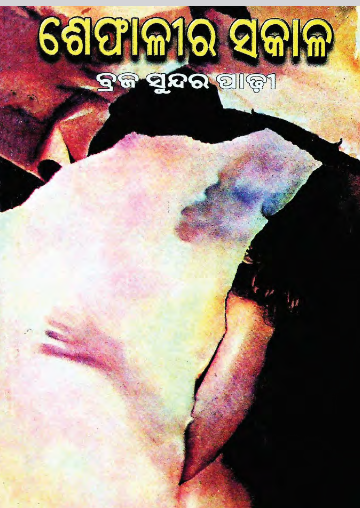Sephalira Sakala, a notable work by the acclaimed Odia playwright Braja Sundar Padhi, published in 2002, is a significant landmark in contemporary Odia literature and drama. A carefully crafted narrative woven with themes of love, tradition, societal norms, and the struggles of identity, this drama captivates audiences with its poignant storytelling and vivid character portrayals.
The play unfolds in a culturally rich setting that reflects the nuances of Odia society, where the characters navigate the complexities of relationships and societal expectations. The title, which translates to “The Whole Essence of a Fragile Flower,” serves as a metaphor for the delicate balance between individual desires and societal pressures, reminiscent of the quintessential elements that define human existence.
At the heart of “Sephalira Sakala” lies the story of its central character, Sephalika, a young woman grappling with the constraints of tradition in her relentless pursuit of love and fulfillment. As she navigates her relationships with family, friends, and a romantic interest, the play explores the tension between personal aspirations and the rigid expectations imposed by society. The narrative demonstrates the resilience of the human spirit in the face of adversity, showcasing Sephalika’s journey towards self-discovery and empowerment.
Sephalika’s character is enriched by her interactions with a diverse cast of characters, each of whom embodies various facets of Odia culture and sensibilities. From the conservative patriarchs who uphold traditional values to the progressive voices that challenge the status quo, the ensemble creates a dynamic interplay that reflects the changing landscape of societal norms.
Sephalika’s journey represents the broader struggle for identity among women in a patriarchal society. Her desire for love, freedom, and self-expression is met with opposition from familial and societal obligations, highlighting the often oppressive nature of cultural traditions.The drama poignantly articulates the complexities of love—both romantic and platonic. Through the lens of Sephalika’s experiences, it examines the various forms of love, the pain of separation, and the joy of connection, ultimately emphasizing that love should transcend societal norms.
The play portrays the clash between traditional values and modern ideals, showcasing characters who embody both perspectives. This duality invites audiences to reflect on their own beliefs and the evolution of cultural practices over time. Sephalika symbolizes the strength of women who dare to break free from societal constraints. Her journey towards empowerment serves as an inspiration for those who find themselves trapped in similar dynamics of tradition and expectation.
Sephalira Sakala is more than just a drama; it is a compelling exploration of the human condition and the intricacies of life in a changing society. Braja Sundar Padhi’s incisive dialogue, rich character development, and poetic language invite audiences to engage not only with the storyline but with the underlying themes of love, identity, and the quest for personal freedom. The play serves as an essential reminder of the delicate balance between tradition and modernity, making it a timeless piece that continues to resonate with readers and theatergoers alike. Through “Sephalira Sakala,” Padhi has cemented his place as a significant voice in Odia literature, contributing meaningful discourse to the ongoing dialogue about the roles and rights of individuals in society.
Books Info
| Books name | Sephalira Sakala |
| Author | Braja Sundar Padhi |
| No Of pages | 98 |
| Publisher | Books India International |
| Publication | 2002 |
| Printed At | Saraswati Printing Press |
| Distributor | NA |

